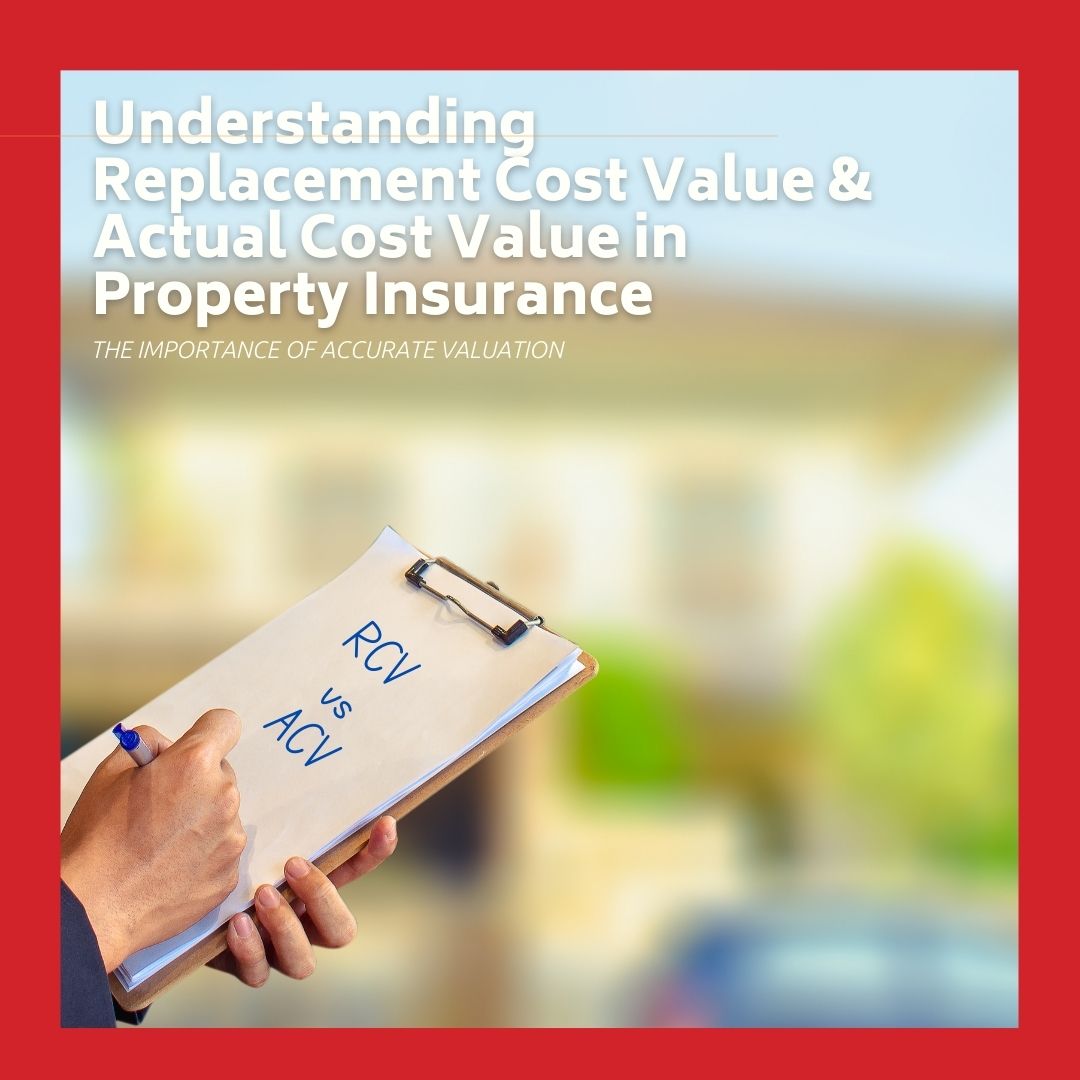
05 Dec Understanding RCV and ACV in Property Insurance
Understanding RCV and ACV in Property Insurance and The Importance of Accurate Valuation
Understanding RCV and ACV in Property Insurance and The Importance of Accurate Valuation
Property insurance is a crucial aspect of protecting your assets and investments, ensuring you have financial security in the face of unexpected events. When it comes to property insurance, two fundamental concepts play a significant role in determining the coverage and compensation you receive in the event of a claim: Replacement Cost Value (RCV) and Actual Cash Value (ACV). In this blog post, we’ll delve into the differences between RCV and ACV and emphasize the importance of valuing your property correctly on the Statement of Values. At Asset Protection Insurance Associates (APIA), determining what kind of coverage you desire is on your insurance application and key to making sure you are covered in the event of a risk that results in a claim.
RCV vs. ACV: What’s the Difference?
What is Replacement Cost Value (RCV):
RCV is the estimated cost to repair or replace damaged property with materials of like kind and quality, without deducting for depreciation. In simpler terms, RCV represents the cost to rebuild or replace your property with new items at today’s market prices. Note, market value is totally different than replacement cost.
Here is an example – Your property is 1000 square feet, let’s say in the area where the house is located, it will cost $85.00 a square foot to build – you will need to insure the house for $85,000 to have replacement cost coverage (1000 x $85.00).
What is Actual Cash Value (ACV):
ACV, on the other hand, considers depreciation. It is the value of the property at the time it was damaged, taking into account wear and tear, age, and other factors that reduce its worth. In the event of a claim, ACV insurance will reimburse you for the damaged property’s current value, which is often significantly less than its original purchase price.
In the case of a damaged roof, ACV insurance might cover the cost of repairs based on the roof’s current, depreciated value, which may not be sufficient to fully restore your property.
The Importance of Accurate Valuation on the Statement of Values
Why is it Important to Accurately Value Your Property?
Now that we understand the distinction between RCV and ACV, let’s discuss why it’s crucial to accurately value your property on the Statement of Values, which is a key document in your property insurance policy.
Adequate Coverage:
When you provide an accurate valuation of your property, your insurance provider can calculate the appropriate coverage limits. Underestimating the value of your property can lead to inadequate coverage, leaving you underinsured and exposed to significant financial risk in the event of a loss.
Claim Settlements:
Accurate valuation ensures that you receive fair compensation in the event of a claim. With RCV coverage, you can replace or repair your property to its original condition. With ACV coverage, the depreciation aspect is crucial to determine the reimbursement amount.
Peace of Mind:
Knowing that you have the right amount of coverage can provide peace of mind, allowing you to focus on recovery rather than worrying about financial shortfalls.
Tips for Accurate Valuation of your Property:
-Regularly update your Statement of Values to reflect changes in property values or renovations.
-Consider using professional appraisers or insurance agents to assess your property’s value.
-Be thorough and document improvements to your property.
-Review your policy and discuss coverage options with your insurance provider to ensure you have the right type of coverage (RCV or ACV) based on your needs.
In conclusion, understanding RCV and ACV is essential for making informed decisions about your property insurance. Accurate valuation on the Statement of Values is the foundation for obtaining the right coverage and ensuring financial protection in the face of unforeseen events. Don’t wait until disaster strikes; review your policy and make sure your property is adequately insured to safeguard your investments and provide peace of mind.
Have additional questions? Let the experts at APIA help with your real estate investor insurance needs. Contact us at 877-752-2742.


